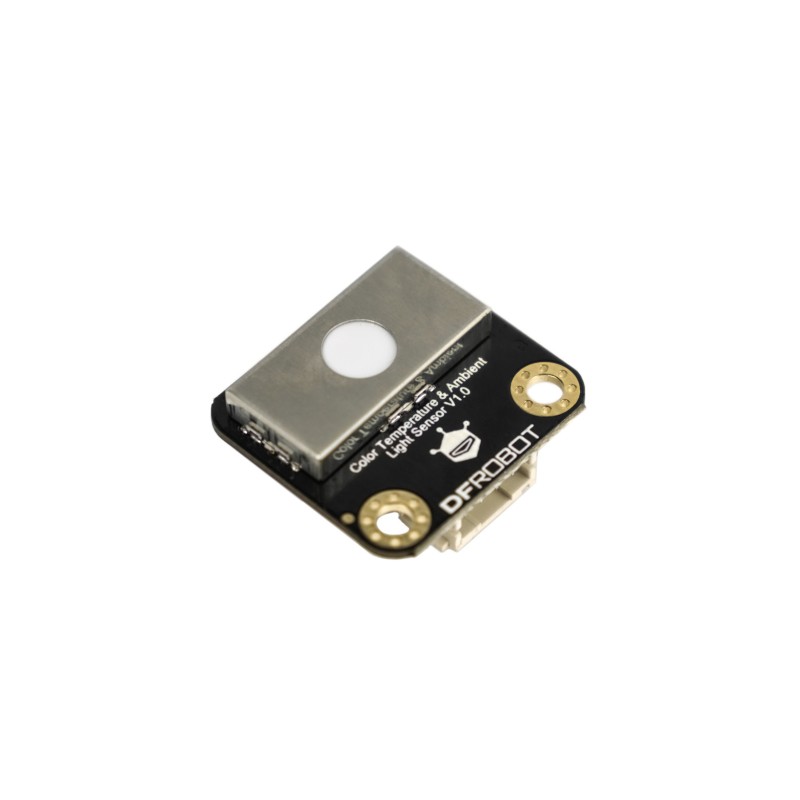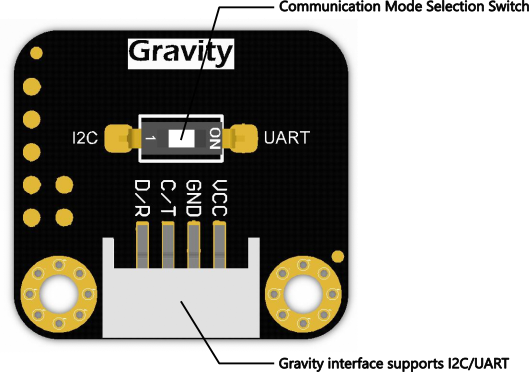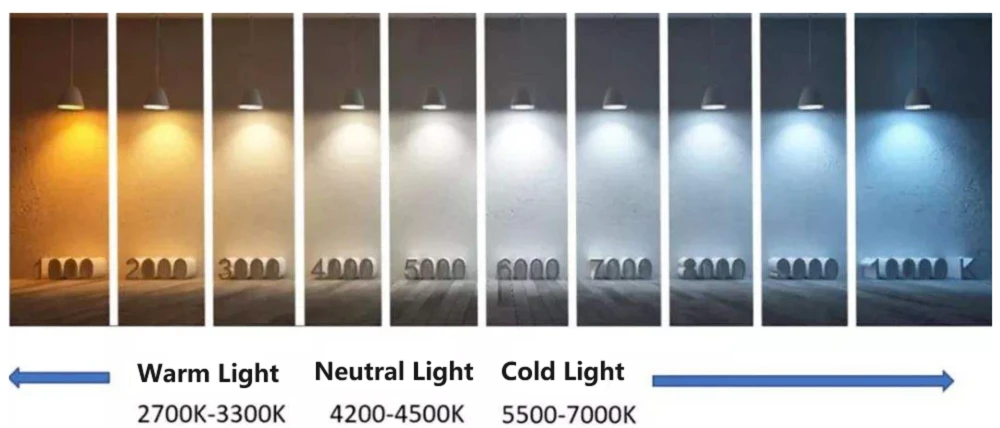





zł110.14 tax excl.
Compact light sensor that provides precise measurement of both illuminance (10–10000 Lux) and correlated color temperature (2700K–6500K), with low measurement errors. Thanks to I2C and UART interfaces, the sensor easily integrates with platforms such as Arduino or Raspberry Pi, making it an ideal tool for photographers, filmmakers and projects requiring lighting control. DFRobot SEN0611
The Gravity: Correlated Color Temperature (CCT) & ALS Meter sensor is a professional tool for precise light measurement, designed for photographers, filmmakers, and visual creators. It allows simultaneous monitoring of illuminance in lux and correlated color temperature in kelvins. The light intensity measurement range is from 10 to 10000 Lux, and the color temperature range is from 2700K to 6500K. With low measurement errors (±5 Lux + ±10% Lux and ±10% K), the data is very accurate and reliable. The device offers I2C or UART communication, making it easy to integrate with various platforms such as Arduino and Raspberry Pi. Thanks to its compact dimensions (only 26×24 mm), the sensor can be easily mounted even in limited spaces.

The CCT & ALS Meter excels both during a photo shoot and in post-production, helping to adjust the light color to the desired visual effect. In outdoor conditions, it captures natural daylight, while in the studio, it provides full control over lighting. The sensor converts light parameters into physical numerical values, ensuring complete control over lighting and color. With low power consumption (only 2.8 mA), it is ideal for use in battery-powered devices.

This is an indispensable solution for those who value high image quality and a professional approach to light management. With this sensor, you can effectively ensure color consistency and proper exposure in every shot. Additionally, measurements allow for accurate replication of lighting conditions in analysis and documentation.
Manufacturer BTC Korporacja sp. z o. o. Lwowska 5 05-120 Legionowo Poland sprzedaz@kamami.pl 22 767 36 20
Responsible person BTC Korporacja sp. z o. o. Lwowska 5 05-120 Legionowo Poland sprzedaz@kamami.pl 22 767 36 20
Module with an analog TEMT6000 light intensity sensor. The voltage at the output is linearly correlated with the intensity of the incident light. The module is supplied with the voltage from 3.3 to 5V. DFRobot SEN0043
Ambient light sensor placed in a transparent hemisphere. It supports a detection range of 0 to 200 klx and communicates via the I2C interface. DFRobot SEN0390
Module with IPS LCD display with a diagonal of 1.8" and a resolution of 128x160 px. Equipped with a microSD card reader. DFRobot DFR0928
Ambient light sensor housed in a transparent hemisphere and waterproof housing. It supports a detection range of 0 to 65535 lux and communicates via an I2C interface. DFRobot SEN0562
Energy-efficient development board with a 32-bit RISC-V 160 MHz processor, designed for smart IoT and home automation applications. It supports modern communication protocols such as Wi-Fi 6, Bluetooth 5, Zigbee 3.0, Thread 1.3 and Matter, which allows easy integration with smart home systems. Thanks to compatibility with Arduino IDE, MicroPython and Gravity and Fermion sensors, the board offers great flexibility and ease of implementation in various projects. DFRobot DFR1075
No product available!
Module with analogue UV light sensor ML8511. It enables the measurement of the radiation intensity for the UV-A (320-400nm) and UV-B (280-320nm) waves. It has an analog interface. GY8511
Module with color sensor TCS3472. The board is equipped with a Grove connector and communicates via the I2C interface. M5Stack U009
Color sensor with a range from 8 to 16 mm. It offers 3 operating modes and can be powered with the voltage from 12 to 24 V. DFRobot SEN0506
Module with environmental sensors for Raspberry Pi Pico. It allows you to measure temperature, humidity, air quality pressure and color detection. SB Components 22366
Multi-functional environmental sensor consisting of SHTC3 temperature and humidity sensor, BMP280 pressure sensor, VEML7700 ambient light sensor and ML8511 UV sensor. DFRobot SEN0500
Module with light sensor VEML7700. It allows you to measure the intensity in the range from 0 to 120 Klx. Equipped with a STEMMA QT connector, it communicates via the I2C interface. Adafruit 5378
Module with a light intensity sensor BH1750FVI dedicated to the M5StickC sets. It communicates via the I2C interface. M5Stack U134
No product available!
Module with color sensor TCS3472. The board communicates via the I2C interface. Waveshare TCS34725 Color Sensor
No product available!
Module with a light intensity sensor LTR-329. It offers a measuring range from 1 to 65535 lux and a 16-bit resolution. Communication takes place using I2C. Adafruit 5591
Module with light intensity sensor LTR-303. It offers a measuring range from 1 to 65535 lux and a 16-bit resolution. Communication takes place using I2C. Adafruit 5610
Module with light sensor (photoresistor). An analog output was led out on the XH2.54 connector
Module with an analog TEMT6000 light intensity sensor. The output voltage is linearly correlated with the intensity of the incident light. The module is supplied with the voltage from 3.3 to 5V
TSL25911FN light sensor module that can measure both visible and infrared light. It communicates via an I2C interface. Waveshare TSL25911 Light Sensor
ireless sensor with LoRaWAN network communication. Dedicated to industrial long-distance data acquisition with a wide light intensity measurement range from 0 to 160000 Lux. Seeed Studio 114992868
Light sensor module in the form of a photoresistor. A comparator and a potentiometer are placed on the board. The module has a digital output
No product available!
The XH-M131 module is a universal module that allows you to control devices with a current consumption of up to 10A depending on the light intensity, which makes it ideal as a twilight sensor for home or garage lighting. It is easy to operate with potentiometer light level adjustment, can be controlled by various 12V power sources and requires no soldering for easy installation. XH-M131
No product available!

Compact light sensor that provides precise measurement of both illuminance (10–10000 Lux) and correlated color temperature (2700K–6500K), with low measurement errors. Thanks to I2C and UART interfaces, the sensor easily integrates with platforms such as Arduino or Raspberry Pi, making it an ideal tool for photographers, filmmakers and projects requiring lighting control. DFRobot SEN0611
